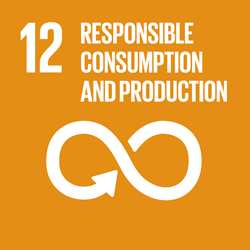Technological watch
Effect of the wine wastes on the thermal stability, mechanical properties, and biodegradation's rate of poly(3?hydroxybutyrate)
This work has pointed out the possibility to use wine wastes as both PHB reinforcing fillers and natural stabilizers, investigating at the same time their effect on the other PHB key?property: the biodegradation behaviour. Experimental evidences concerning the relation between PHB thermal stability (processing), mechanical properties (lifetime) and biodegradation (post?life) have been collected and discussed.AbstractIn this work, two different wine derived additives, seeds extracts (Sext) and wine lees (WL), have been tested within poly(3?hydroxybutyrate) (PHB) for different purposes. First, the effect of wine seed polyphenolic extracts (Sext) on the PHB thermal stability has been investigated considering the molecular weight decrease (gel permeation chromatography), the impact on the viscosity (mass flow rate), the thermogravimetric analysis (TGA) curves, and the oxidation induction times. Different stabilizers formulations have been tested and the results have been compared with unstabilized PHB. Subsequently, WL have been mixed in different concentration (10, 20, and 40?phr) within PHB by twin?screw extrusion and the obtained biocomposites have been characterized from a thermal (differential scanning calorimetry and TGA) and mechanical (dynamic mechanical analysis and tensile test) points of view exploiting also the micromechanics models of Voigt, Halpin?Tsai and Pukanszky. Finally, biodegradation tests in soil and in marine water have been carried out for each investigated PHB formulation in order to evaluate the effect of Sext and WL on the microbial degradation.
Publication date: 07/08/2020
Author: Alessandro Nanni, Massimo Messori
Reference: doi:10.1002/app.49713







